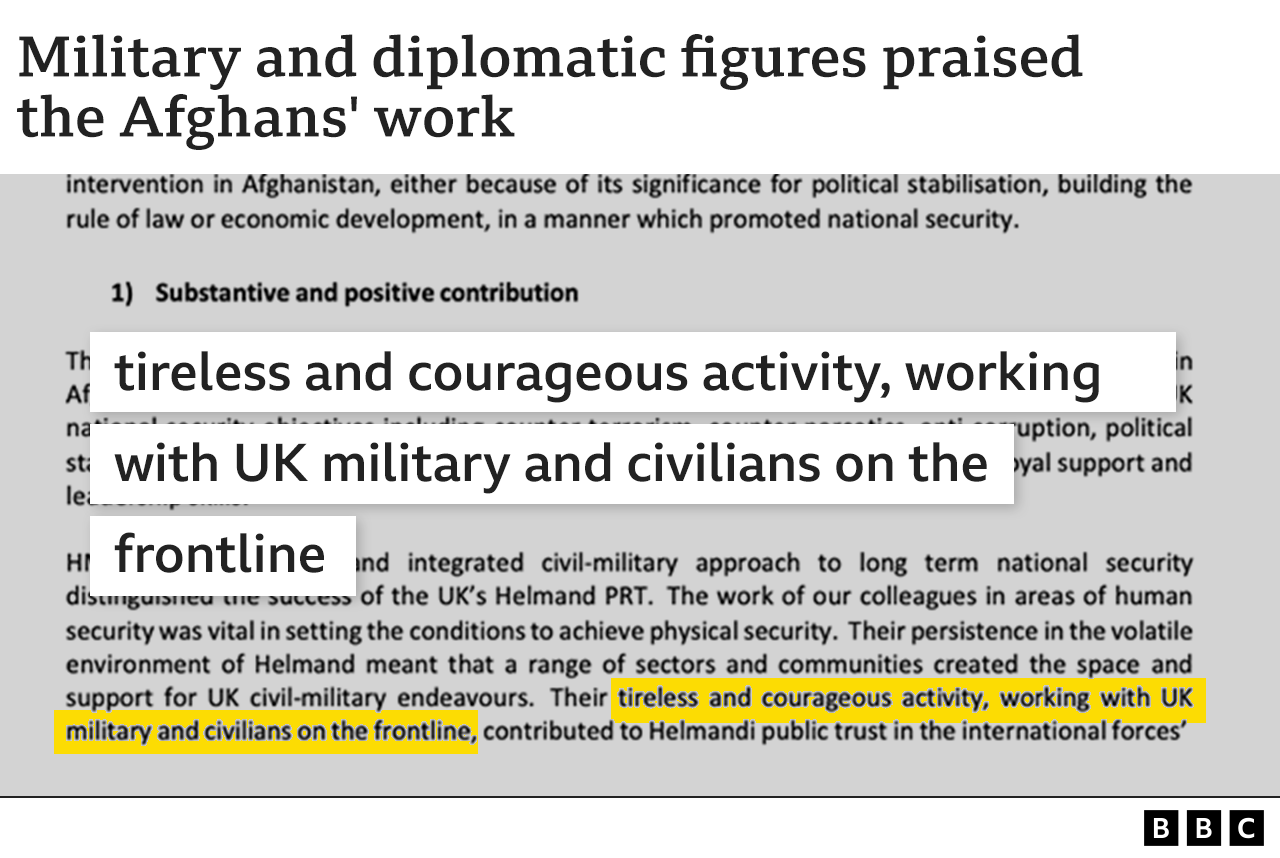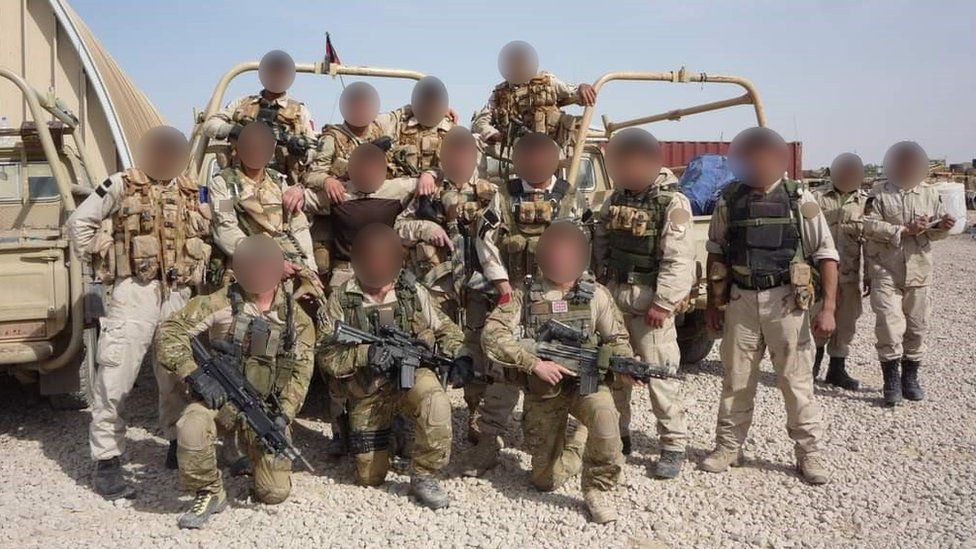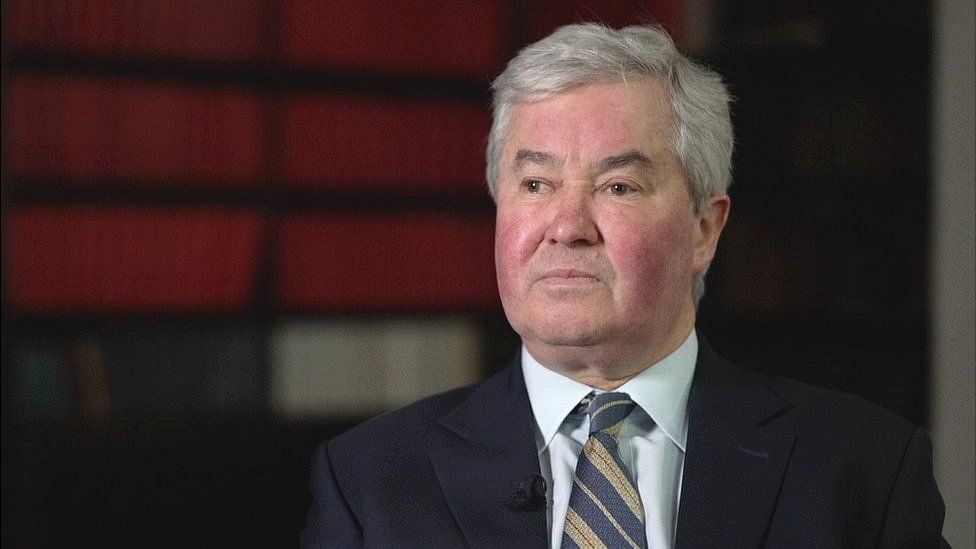About 200 members of Afghan special forces, trained and funded by the UK, face imminent deportation to their Taliban-controlled homeland, the BBC has learned.
The figures – gathered by a network of Afghan veterans – reveal the scale of what one former UK general calls a “betrayal” and a “disgrace”.
The soldiers fled to Pakistan, which now says it will expel Afghan refugees.
The UK says it has brought thousands of Afghans to safety.
Gen Sir Richard Barrons, who served the British Army in Afghanistan over 12 years, told BBC Newsnight that the failure of the UK to relocate these soldiers “is a disgrace, because it reflects that either we’re duplicitous as a nation or incompetent”.
“Neither are acceptable,” he said. “It is a betrayal, and the cost of that betrayal will be people who served with us will die or spend their lives in prison.”
In 2021, Prime Minister Boris Johnson had told Parliament that the service of these Afghan special forces had been “incredibly important”, adding the UK would do “whatever we can” to get “safe passage” for them.
The fears for the Afghan commandos come as it was revealed the government also rejected calls from senior British diplomatic and military figures to offer asylum to key Afghan civilian leaders whose lives were in danger.
The BBC has obtained a private letter sent in March 2022 to the Foreign Office, which called for urgent help to be given to a group of 32 former governors, prosecutors and officials who worked with the UK and US in Helmand Province during operations between 2006 and 2014.

Like most of the 200 special forces soldiers, these 32 officials had applied to come to the UK through the Afghan Relocations and Assistance Programme (ARAP), intended for those employed by the UK government, or who “worked in Afghanistan alongside a UK government department, in partnership with or closely supporting it”.
Many of the officials and the soldiers were rejected, while others are still waiting for a decision after more than a year.
One of the officials, a former district governor, told the BBC his application for help through the scheme was refused two weeks ago, more than 20 months after he first applied.
Sir Richard, one of the private letter’s signatories, said: “We made a special commitment to these people, and we have not honoured it with an efficient, effective or even compassionate system.”
‘We fought shoulder-to-shoulder’
“Ali”, one of the Afghan special forces soldiers facing expulsion from Pakistan, told the BBC he felt abandoned and betrayed by the UK.
Speaking from a one-room safe house, he said of his work with the UK military: “We were together day and night. During training we slept under one tent, eating from the same dish.
“During operations we fought shoulder-to-shoulder with the British, as members of one family.”
Ali was a member of an elite unit known as Commando Force 333, set up in 2003 by the UK to counter Afghanistan’s growing problems with opium production.

Along with its sister unit, Afghan Territorial Force 444, they became known as “the Triples”. They quickly gained a reputation for effectiveness, honesty and courage.
“The Triples were at the front end of the UK-supported counter-terrorism operation,” said Gen Sir Richard Barrons. “They did the most dangerous, the most difficult, the most important missions, accompanied by British soldiers.”
In August 2021 as the Afghan state collapsed, one of the few units that held firm was CF333. Along with his colleagues, Ali headed to the Baron Hotel in the capital Kabul to protect British passport holders as they escaped the country.
But he was unable to board an evacuation flight himself, and eventually made it to Pakistan by land. Ali assumed his nearly two decades fighting alongside the British would mean he would soon be offered help. He was wrong.
“We never thought that heroes would be abandoned. We took all those risks. We were ready to help the international community, we respected freedom of speech and human life, then everything turned upside down. It is really disappointing,” he said.

Now, as the Pakistani authorities crack down on undocumented Afghans, threatening to deport any they catch, Ali said: “I can’t work. I live inside this one room with my wife and five kids due to fear of the police. I’ve sealed myself at home for three months now.”
The estimated figures suggesting there are about 200 commandos like Ali facing deportation by the end of the year have been gathered through a secret network of former members of Afghan security forces and given to the BBC.
It is impossible to know for certain, but we have been told by senior British diplomatic sources that these figures are the best estimates yet.
It is not just former members of Afghan special forces who say they have been left in the cold, but also Afghan civilians who helped the UK.



